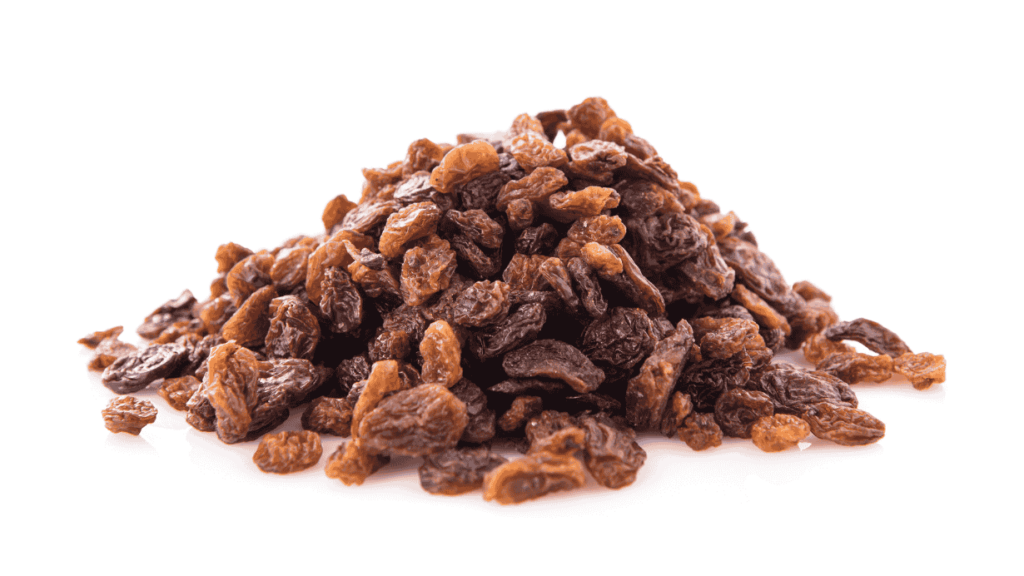Fresh Raisins





Raisin
Menu

| Heading | Information |
|---|---|
| Raisins | Sweet, chewy dried grapes used in desserts, cereals, and Middle Eastern dishes. |
| Producing Countries | Turkey, USA, Iran |
| Producing Benefits | Rich in Antioxidants: Raisins are packed with antioxidants like polyphenols, which help reduce oxidative stress and protect the body against cell damage. Good for Digestion: They are a natural source of dietary fiber, which aids in digestion and helps prevent constipation. Bone Health: Raisins contain essential minerals like calcium, magnesium, and boron that contribute to stronger bones and better bone density. Heart Health: Raisins are rich in potassium, which helps maintain healthy blood pressure, and they contain fiber that can contribute to lowering cholesterol levels. Energy Boosting: High in natural sugars like glucose and fructose, raisins provide an instant energy boost and are often used as a quick snack. Oral Health: Raisins contain oleanolic acid, which may help fight cavities and improve overall oral health by preventing bacteria from sticking to teeth. Rich in Iron: Raisins are a good source of iron, which is essential for maintaining healthy red blood cells and preventing iron-deficiency anemia. |
| Ingredients | Raisins: Raisins are dried grapes, typically either Thompson Seedless or other varieties, and are often sold without any additives. Possible Additives: Some commercially available raisins may contain preservatives such as sulfur dioxide (to maintain color and extend shelf life), or they may be lightly coated with vegetable oil to prevent sticking. |
| Allergen | Potential Cross-Contamination: While raisins themselves are not considered a common allergen, they may be processed in facilities that also handle tree nuts, peanuts, or other allergens, which can pose a risk for people with allergies. Sulfur Dioxide: Some raisins contain sulfur dioxide as a preservative, which could trigger reactions in individuals sensitive to sulfites (a known allergen). |
| Storage | Cool, Dry Place: Raisins should be stored in a cool, dry place, away from heat or sunlight, to maintain their freshness and prevent spoilage. Airtight Container: After opening, store raisins in an airtight container to protect them from humidity and preserve their texture. Refrigeration: Raisins can also be stored in the refrigerator, especially in warmer climates, to extend their shelf life. Freezing: For long-term storage, raisins can be frozen. Make sure they are in a sealed, airtight bag or container to prevent freezer burn. |
| Nutrition Facts | Nutrition Facts (per 1 ounce or ~28 grams of raisins): Calories: Approximately 85 kcal Total Fat: 0.1 g Saturated Fat: 0 g Cholesterol: 0 mg Sodium: 5 mg Total Carbohydrates: 22.2 g Dietary Fiber: 1.0 g Sugars: 21.3 g (natural sugars) Protein: 0.9 g Vitamins and Minerals: Vitamin C: 0.4 mg Calcium: 18 mg Iron: 0.9 mg Potassium: 212 mg Magnesium: 7 mg Boron: 0.1 mg (important for bone health) |


